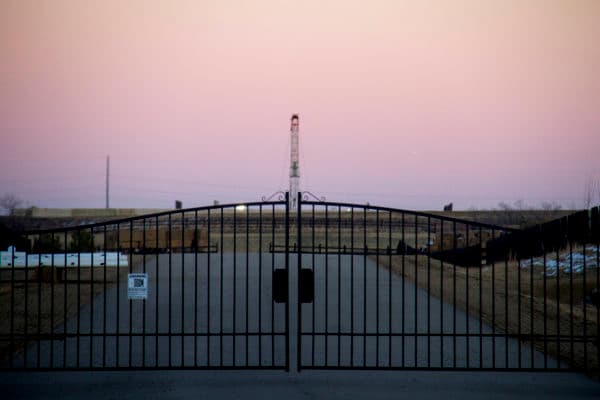
Colorado's oil and gas industry is stuck between being the booming business it was nearly two years and the salvaged sector it expects to be in coming months.
Hundreds of jobs have been cut since crude oil prices started to plummet in 2014. And drilling activity is less than half of what it was two years ago.
The decline is reflected clearly in what companies can make selling a barrel of a crude oil.
On Tuesday, West Texas Intermediate oil futures were going for about $43 a barrel. That's down 60 percent from $107 per barrel peak in June 2014.
All the decline plus court-ordered tax rebates to oil companies means Colorado lawmakers will have to tackle spending cuts to avert a general fund shortfall next fiscal year, according to revenue forecasts released Tuesday by legislative and administration analysts.
The situation is such that some companies haven't been able to survive.
Five Colorado oil and gas companies have filed for bankruptcy since 2015. Their debt totals $259 million, according to the Haynes and Boone LLP Oil Patch Bankruptcy Monitor.
"What we're seeing right now is a little bit of consolidation of the industry. What's a failure of one company could be an opportunity for another," said Brian Lewandowski, associate director of the University of Colorado Boulder’s Business Research Division.
"It's kind of like during the housing foreclosure crisis. There were builders that were going bankrupt. So the next company was able take their land and make a purchase that was pennies on the dollar."
On some level, the decline in the oil and gas industry is simple to explain, Lewandowski said.
Companies ramped up drilling activity and production to profit on the booming industry. The increase in supply of crude outpaced global demand and caused prices to fall.
Some analysts and economists expected the decline in crude oil prices to be a good thing for those not directly tied to the industry. Consumers and companies could save on gas and transportation costs and pass those saving on to the rest of the economy.
Some like JP Morgan Chase & Co. say that's what's happening. But others claim the savings are staying in shoppers' wallets.
There's still time for analysts to reach a final verdict. Gas prices are expected to stay below $3 through 2017, according to a forecast from the U.S. Energy Information Administration.
"U.S. regular gasoline retail prices are expected to decline from an average of $2.18 per gallon in August to $1.92 per gallon in December," the forecast states. "For the year, U.S. regular gasoline retail prices are forecast to average $2.08 per gallon in 2016 and $2.26 per gallon in 2017."
That's even with expectations for crude oil prices showing improvement and hovering in the $50 region in 2017 — up from the $40 region in 2015 and 2016, but still lower than two years ago.
Lewandowski warns, "Trying to forecast oil prices is kind of a fool's game."
There will likely be a lag before we see the benefits of the oil and gas industry recovering in employment and other data, he said.
"It took months before we started to see the rig count drop. It took even more months before we started to see employment take a turn. And then it took even longer before we saw production take a turn," he said.
"Now all of these things are pretty firmly in decline."
There were 8,600 less jobs in the industry that houses oil and gas in August compared to June 2014, according to employment data released from the state Tuesday.
As of Sept. 16, there were 19 rigs in Colorado, according to Baker Hughes. That's down from 33 rigs in September 2015 and 76 rigs in September 2014.
"Prices have rebounded a little bit, but production in Colorado is still down. Rig counts are still down and employment is certainly still in decline in the industry," Lewandowski said.
Business & data reporter Adrian D. Garcia can be reached via email at [email protected] or twitter.com/adriandgarcia.
Subscribe to Denverite’s newsletter here bit.ly/DailyDenverite.














